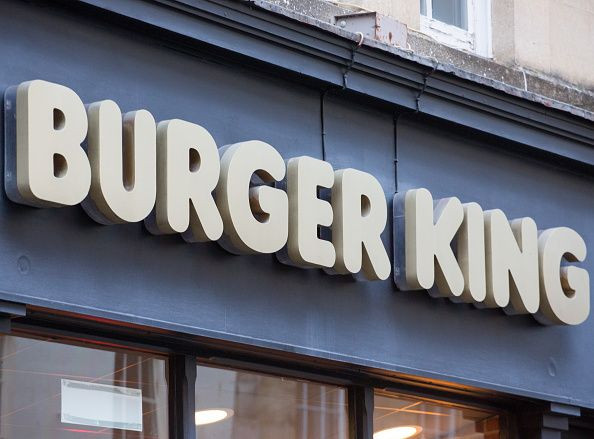U.K. Retailers May Defer Or Halt Rent Payments During Coronavirus Crisis

KEY POINTS
- Alasdair Murdoch, chief executive of Burger King U.K., said they will not pay the current rent
- Burger King closed 500 of its U.K. locations earlier this week
- Jonathan Downey said the government’s loan program might not help the hospitality industry
Hundreds of retailers in the U.K. are planning to postpone making rental payments in order to preserve cash or pay their staff amid the closures caused by the coronavirus pandemic.
Alasdair Murdoch, chief executive of Burger King U.K., said: “We are not intending to pay our rent."
He added: "Most landlords have been reasonable about this. I do think there are a number of creative solutions as well. We could add three months on to the end of the lease for those people who are unable to pay in the short-term at the end of these three months."
The British government has assured that shops and businesses will not forfeit their leases if they do not pay their rent – however they will have to cough up arrears in the future.
Burger King closed 500 of its U.K. locations on Monday, although the government said restaurants can still offer takeout and delivery service.
Richard Hodgson, chief executive of sushi restaurant chain Yo! Sushi, told the Financial Times that refraining from paying the rent was "not really a choice. It's just a basic piece of economics.”
BBC reported that some tenants seek to defer rent or pay monthly or not pay at all until their businesses revive.
British home furnishing retailer Dunelm has entered into talks with its landlords on rent reductions. Dunelm said it was drawing down 175 million pounds ($207 million) in available credit lines, canceling its interim dividend and cutting executive salaries for three months
Land Securities, a commercial real estate firm, said it was working with its tenant groups to help them maneuver the current difficult landscape.
“Forfeiture of the lease in these circumstances was not an option we were considering for customers unable to pay the rent and this approach has now been formalized by the government,” Land Securities said.
The U.K. government introduced a £350 billion ($413 billion) stimulus package to support businesses during the coronavirus pandemic, including interest-free business interruption loans.
However, Jonathan Downey, founder of Street Feast food markets, said the government’s program might not help the hospitality industry.
"The sad reality is that any business operating hospitality now is insolvent, so any right-minded lender using normal rules is not going to lend," he said. "We estimate that 95% of hospitality businesses will not qualify for one of these loans."
UKHospitality, which represents the country’s leisure and hospitality businesses, praised the government for recently enacting an emergency moratorium on commercial landlord sanctions and debt enforcement for at least three months.
“This move by the government is hugely welcome and will help to protect jobs across the sector,” said Kate Nicholls, CEO of UKHospitality. “While this removes the immediate cashflow pressure of [quarterly] rent day, the government has made clear that the negotiation is now with lessee and landlord to reach a solution on payment. Hospitality businesses want to work with landlords constructively during this crisis to find solutions and the hope now is that they enter into meaningful discussions on the optimum way forward.”
However, halted or postponed payments will place pressure on landlords, some of whom may default on their own debt commitments.
Edward Cooke, chief executive of Revo, a group that represents U.K. retail property owners, said landlords are seeking to support their tenants through the crisis, potentially through loans or grants.
“We want these companies, which support thousands of jobs and invest billions in U.K. towns and cities, to survive, and most will with the right interventions,” Cooke said.
But Andy Pyle, U.K. head of real estate at KPMG, warned: “If rental payments are to be missed, property companies will be under increased pressure to pay interest on their own loans and they may even default. This will impact those invested in commercial property, some of whom may depend upon the regular income it provides. Far from just private or family wealth, these investors include those in receipt of pensions and savings, shareholders in REITS [real estate investment trusts] or beneficiaries of company and state pension schemes.”
Cooke of Revo noted that the owners of retail property, “many of which are pension funds, invest in the fabric of our towns and cities and also need direct financial support from The Treasury if we want shops and other crucial infrastructure to survive and to prevent the rapid decline of our urban centers.”
© Copyright IBTimes 2025. All rights reserved.





















